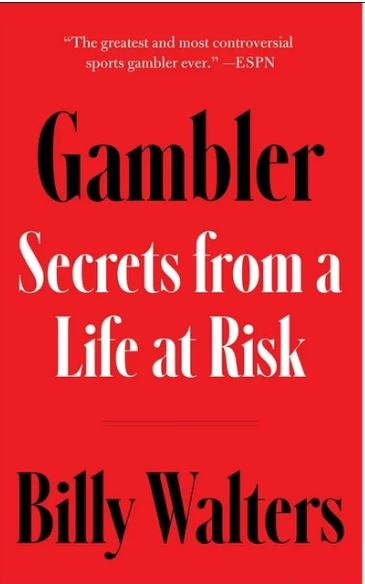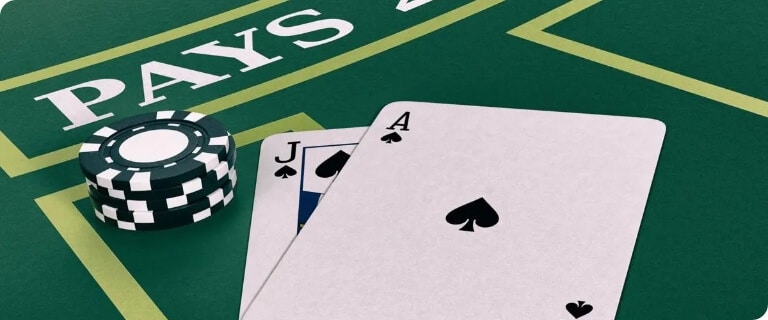
Some readers upon seeing this title might think that only cultural icons — e.g., Cher, Madonna, Elton — are recognizable by just one name, so who’s “Billy”? But if you’ve been involved in the sports betting world for all or part of the last four decades, Billy is all you need to hear to know the subject is Billy Walters, the most successful sports bettor in history.
When I heard that Billy had a book coming out, I was both excited, because he’s been a secretive sports betting force for many years whom I’d love to know more about, and apprehensive, because my book, All About Sports Betting, will be out soon, and competing against Billy in the sports betting arena was bad enough, let alone in the book business.
To be clear, anyone who made a sports bet during Billy’s heyday was competing against him, because the betting lines you see in sports books aren’t a product of the sports book’s genius, but rather the genius of the sharpest bettors in the world, whose bets induce books to adjust their lines. And no one moved lines like Billy.
Billy’s book, Gambler: Secrets from a Life at Risk, is his story, describing how a poor country boy from Kentucky evolved from a compulsive gambler and alcoholic to become a successful businessman, philanthropist, and sports betting legend.
Billy’s recounting of his younger years is a fascinating look at a chaotic life probably not that uncommon in hardscrabble sections of the country at that time. It’s when he moved to Las Vegas in 1982 that he entered an arena few have experienced, having adventures with the famous and infamous Las Vegas characters of the time, including casino owners Benny and Jack Binion; gamblers Chip Reese, Doyle Brunson, Puggy Pearson, Johnny Moss, Billy Baxter, Stu Unger, Bobby Baldwin, Sarge Ferris, Dewey Tomko, Jack “Treetop” Strauss; and bad guys Jimmy Chagra and Tony Spilotro. This was around the time when I moved to Las Vegas, starting out on the ground floor, and it was captivating for me reading about the things that were going on around me at the highest levels with characters I’d only read about, many of whom I’d soon interact with.
Billy tells the story of his serious foray into sports betting, starting with his association with the Computer Group, its bust by a misguided FBI agent, and subsequent acquittal. (Anthony Curtis and I went to the fascinating trial, where they were acquitted, being judged to be “mere bettors.” Some of those charged were people my own betting group worked with in the ‘90s, which I recount in my book.) He then describes how he set out on his own and soon became the most feared sports bettor of all time.
The book also details the story behind how Billy and his former friend Steve Wynn became bitter enemies, his involvement in charitable work, notably with Opportunity Village in Las Vegas, and his many other business ventures. The part that has garnered the most media attention is the story of his relationship with golfer Phil Mickelson.
The feds, who had been after Billy for years because of the size of his sports betting operation, finally got him on insider-stock-trading charges, and the book starts out with the description of his incarceration. He was released in 2020 due to COVID, then had his sentence commuted, but didn’t get a full pardon, which he attributes to Steve Wynn’s close relationship with then-President Trump. He claims innocence and is still fighting to clear his name.
In the pre-publication hype for the book, Billy promised to release some of his betting secrets. He covers some basic concepts in one chapter and some more advanced constructs in another. It’s good stuff and if he’d released his methods in the ‘80s or ‘90s, it would have been revolutionary. But nothing revealed in the book isn’t already known and used by today’s winning handicappers. And more important, at least to me, while it’s a great story, his book doesn’t interfere too much with the things I cover in mine.
All in all, Billy’s book is a slice of Americana that I think anyone with an interest in gambling will enjoy reading.





![[IMAGE] September is Suicide Prevention Awareness Month: Looking at Problem Gambling as a Root Cause](https://mlbazfn4liwi.i.optimole.com/w:1024/h:819/q:mauto/f:best/https://gamblinghelp.org/wp-content/uploads/2023/09/iStock-1421541180.jpg)

![[IMAGE] September is Suicide Prevention Awareness Month: Looking at Problem Gambling as a Root Cause](https://mlbazfn4liwi.i.optimole.com/w:1024/h:819/q:mauto/f:avif/https://gamblinghelp.org/wp-content/uploads/2023/09/iStock-1421541180.jpg)
![[IMAGE] Coping Skills for Loved Ones of Compulsive Gamblers](https://mlbazfn4liwi.i.optimole.com/w:1024/h:683/q:mauto/f:avif/https://gamblinghelp.org/wp-content/uploads/2023/09/iStock-167786996.jpg)